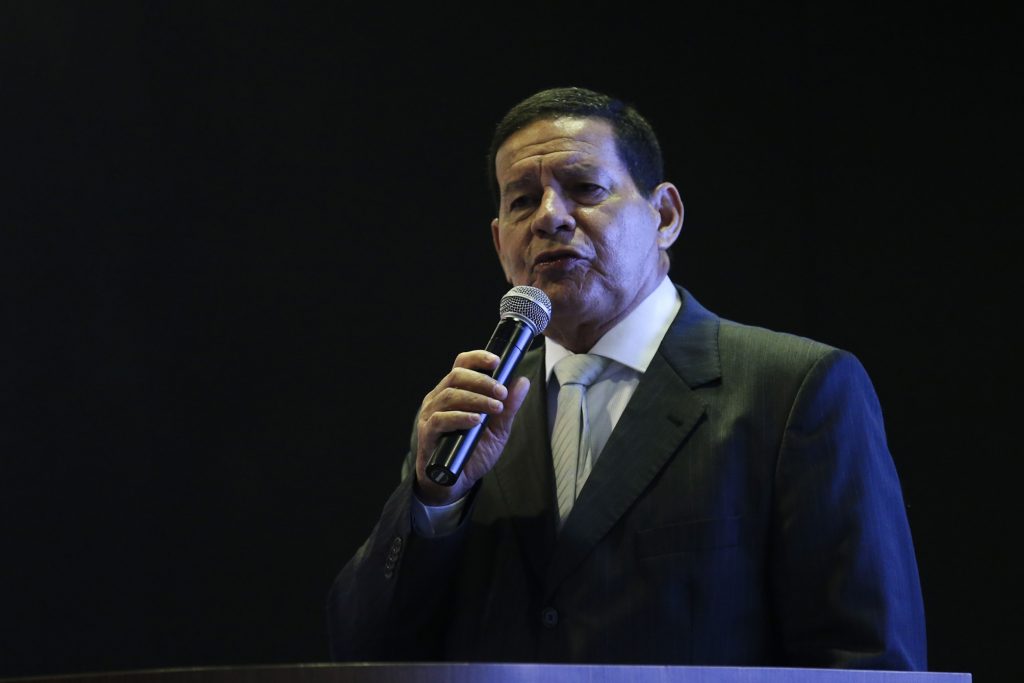Decree increases number of positions authorised to classify data as ‘top secret’
In a joint letter, organisations criticise measure that changes the rules of the Freedom of Information Law
 The vice-president of the Republic elect, Hamilton Mourão, participates in debate on the new government’s strategies for infrastructure in Brazil, at the National Association of Ground Transport (ANTT).
The vice-president of the Republic elect, Hamilton Mourão, participates in debate on the new government’s strategies for infrastructure in Brazil, at the National Association of Ground Transport (ANTT).
By means of decree 9.960/19, passed on Thursday, 24 January, in the Diário Oficial da União, the federal government changed the rules of the Freedom of Information Law, increasing the number of civil servants who have permission to attribute the status of ‘top secret’ to public data.
It is claimed that the measure, signed by acting president General Hamilton Mourão, will reduce the paperwork involved in analysing requests. It gives lower ranking staff, such as heads of local authorities, foundations, public companies and semi-public corporations the power to allocate this classification of secrecy.
Therefore, both directors of institutions like the BNDES (National Bank for Economic and Social Development) and Petrobrás and their direct subordinates will have this authority.
According to the Statistical Panel of Personnel of the Ministry of Planning, there are over 1,200 members of staff in Group DAS at level 101.6 and above and in Group DAS at level 101.5 and above, positions that are now authorised to classify information with the highest level secrecy rating.
Over 20 civil society organisations and a number of specialists who work in the field of transparency have signed a joint letter criticising the government’s decision.
According to an extract from the document “the changes endanger the spirit of the Freedom of Information Law, that considers confidentiality to be exceptional in nature and increases control and the political cost of confidentiality classification.”
“There is currently no clear regulation on what constitutes a risk to society or to the state, that justifies adopting confidentiality, for example. There are also no rules that determine when it is actually necessary to use maximum levels of confidentiality. Opening this decision up to lower ranks will tend to create conservative behaviour among public agents, reducing transparency and variety in the criterion used in public administration.”
Institutions that signed the document include Transparency Brazil, Article 19, Abraji (Brazilian Association of Investigative Journalism) and Conectas Human Rights. In the letter, they also criticise the lack of public debate in arriving at this decision and draw attention to the governments move away from policies that promote transparency and fight corruption.
- Read here the full joint letter


